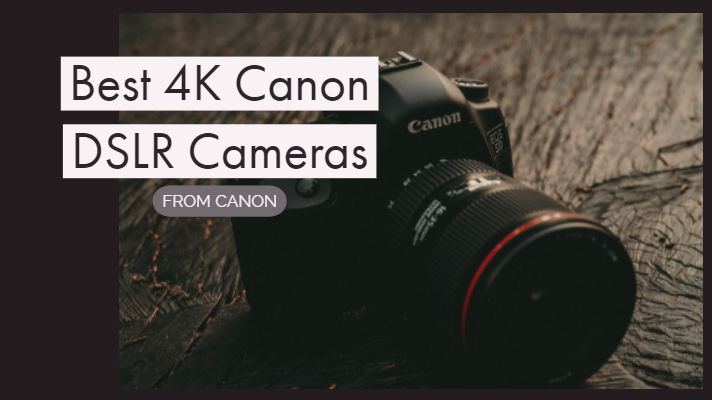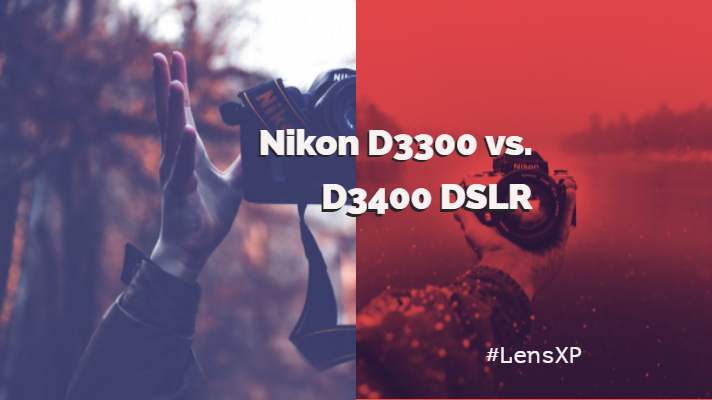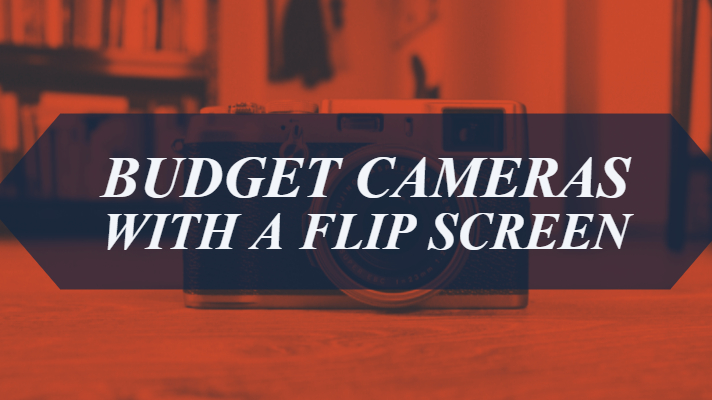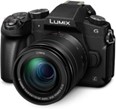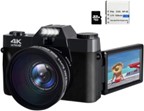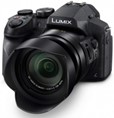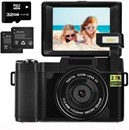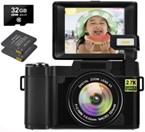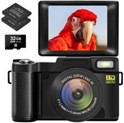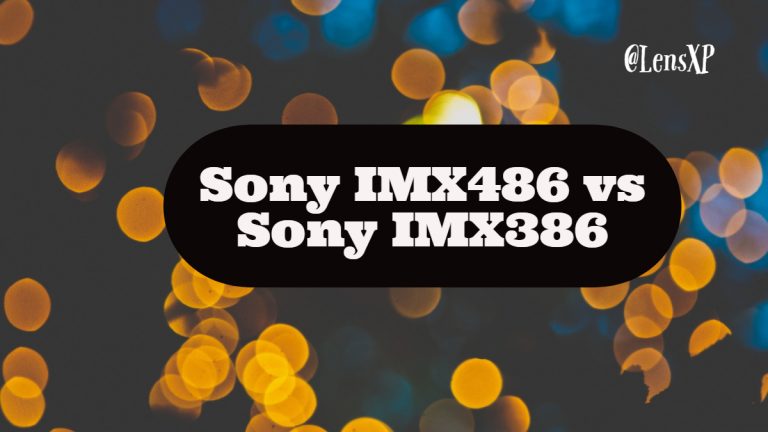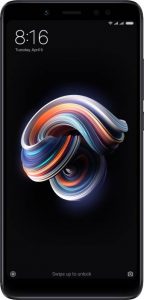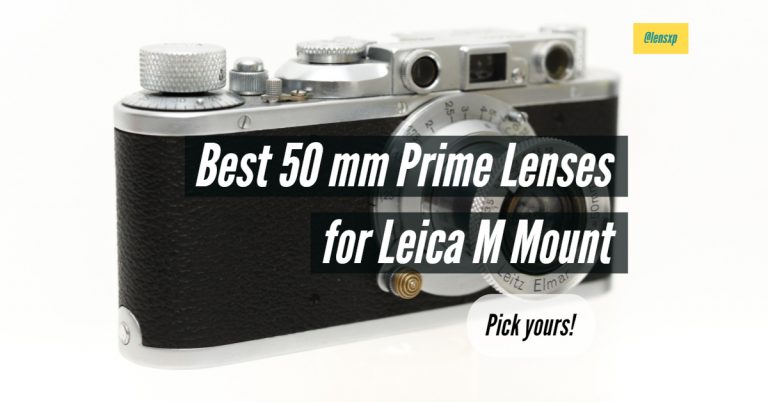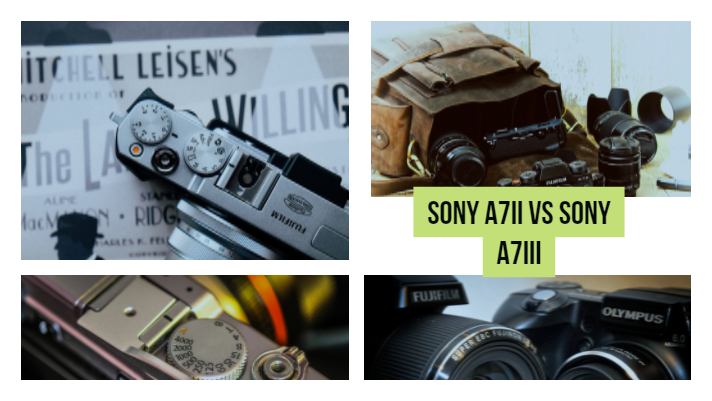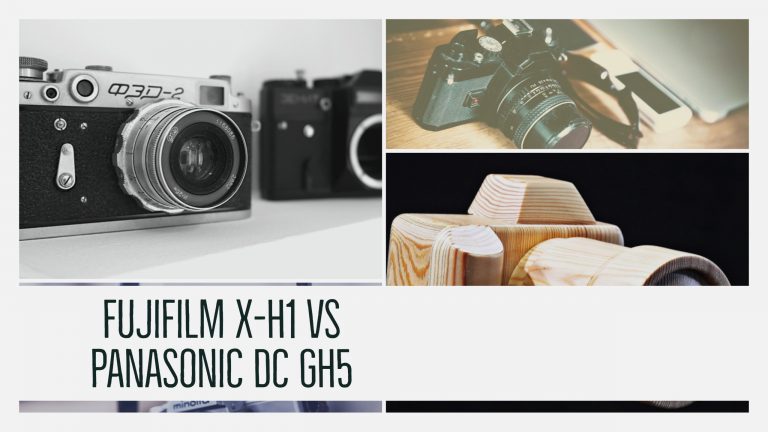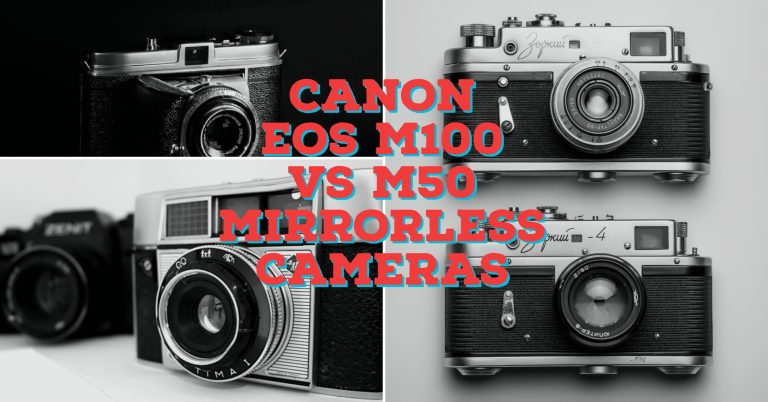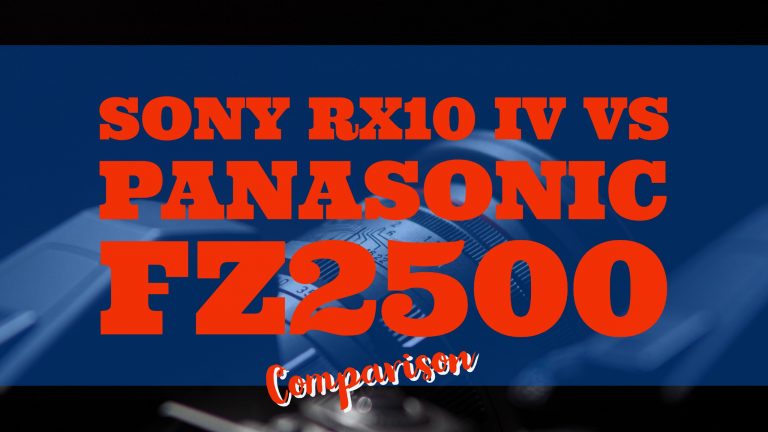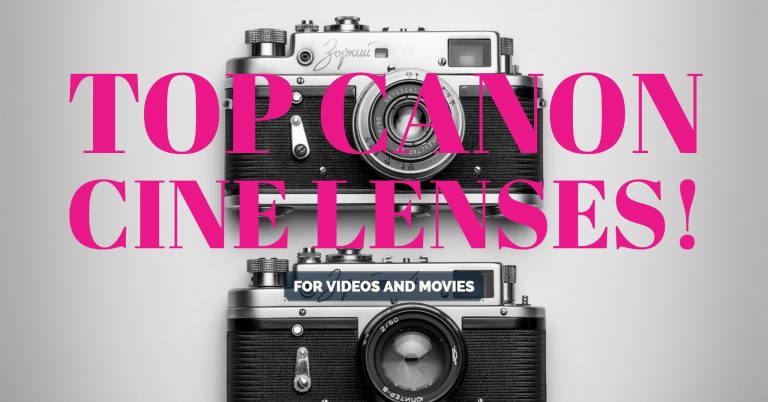If you are on the market for budget Cameras with a Flip Screen, look no further.
Cameras have become an important part of our daily lives. We capture significant moments of our experiences in the form of photographs using this little tool. The original pinhole camera was introduced to the real world in 1888, but the camera has evolved a lot with time.
After all these years of advancement, cameras are now portable, have excellent reproduction, and are packed with many features to allow us to shoot a moment and share it with the world in a matter of seconds. On the flip side, the more significant the number of options, the higher the confusion will be.
Also Read: Best vLogging Lenses
Among the numerous features that cameras have nowadays flip screen is the latest feature introduced on the camera. Now the question arises why the camera should have a flip screen? A flip screen has various advantages like it helps to compose your shot efficiently; it means you can partially tilt your flip screen to get rid of the glare without having to move your camera set up at all. With a flip-screen camera, you can turn it around to see yourself correctly when taking a selfie. And a lot more like these, which you will get to know once you use the camera in the real world.
There are various flip screen cameras available in the market, but not all worth the money. So here, we are going to list some of the best budget flip cameras in increasing order of price.
Budget Cameras With A Flip Screen
In this list, we have tried to cover Hybrid, Mirrorless, and DSLR’s, which we think are excellent cameras in their respective categories. Moreover, it gives our readers more flexibility to pick the best suitable based on one’s taste. So, let’s get started.
1. Nikon COOLPIX B500 Digital Camera
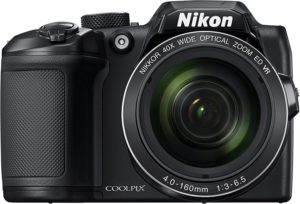
Check on Amazon
This is a 16-megapixel camera with a 4.0-160mm f/3.0-6.5 built-in lens, which provides a 22.5-900mm equivalent focal length range (40x optical zoom). The B500 comes with a 1/2.3-inch CMOS sensor and full Nikon SnapBridge wireless connectivity.
Along with the optical zoom, the B500 also has 4x digital zoom, which helps in providing a field of view equivalent to that of a 3,600mm lens in 35mm format. The weight of the Nikon B500 is 541 grams. This camera accepts the SD/SDHC/SDXC memory and has an internal memory of 20 MB.
The 921k-dot tilting TFT LCD provides 98% frame coverage when shooting and 100% image area during playback. The ISO sensitivity range of Nikon B500 is 125-1600 in all modes, although ISOs 3200 and 6400 are available exclusively in Auto mode. This camera has a shutter speed of 1/1400 while using during the continuous high-speed shooting mode, and its faster shutter speed is 1/1500s. B500 can capture seven full-resolution images at up to 7.4 fps. It has built-in Wi-Fi, NFC, and Bluetooth Low Energy (BLE).
2. Canon Powershot N 12.1 MP CMOS Digital Camera
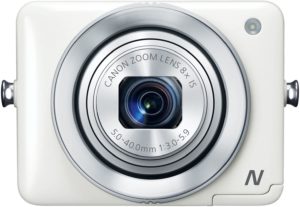
Check on Amazon
Because of the superb ability to capture high-resolution pictures and videos flawlessly, this camera makes it to this list of best flip screen budget cameras. Canon Powershot camera comes with a 28 mm wide-angle lens with 8x zoom. With this 8x zoom, you can capture the object with precise details. A 12.1 MP CMOS sensor is used in this camera. A dedicated movie mode is used in this camera to record high definition 1080p quality videos.
This camera also has a feature of a 2.8-inch touch, multi-angle LCD flip screen. It provides you a rotation of 90 degrees so that you can get the perfect shot at different angles. This camera comes with an eco mode, which allows you to operate and also consume less battery power while doing so.
3. Panasonic LUMIX DMC-LX10K camera
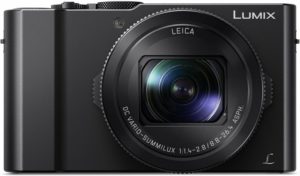
Check on Amazon
Panasonic LUMIX DMC-LX10K uses a 20.1 MP High Sensitivity MOS Sensor that provides sharp stills, UHD 4k video, and more. The LX10 features a fast Leica DC Vario-Summilux f/1.4-2.8 lens with a versatile 3x zoom range to deliver sharp, richly detailed images. LX10 has a sensitivity range to ISO 25600 and continuous shooting at up to 50 fps with an electronic shutter and 10 fps with a mechanical shutter.
This camera features hybrid shooters, which appreciates the inclusion of high-quality UHD 4K video recording. Lx10 also has features like focus stacking and Wi-Fi connectivity, which makes this a competent imaging tool. This camera also can record at 30 or 24 fps at 100 Mbps using the MP4 format.
4. Panasonic Lumix G7
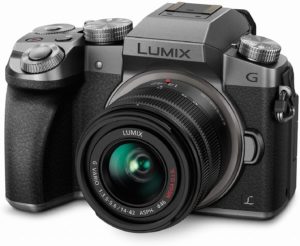
Check on Amazon
The Panasonic Lumix G7 features a 16-megapixel Digital Live MOS sensor that supports a maximum ISO 25600. This camera is powered by a quad-core CPU that delivers high-speed signal processing, which results in 8fps (AFS)/ 6fps (AFC). This camera supports video recording at QFHD 4K resolution with a 3840 x 2160 pixel count in MP4 format.
Panasonic has also given a drive mode dial on the Lumix G7 and the front and rear dials. This drive mode dial enables you to let you quickly activate 4K photo mode. This camera also provides the feature of Wi-Fi connectivity and a 3.5mm microphone jack. Several other camera features are focus peaking, creative controls with 22 filters, and the time-lapse shot.
5. Yisence Full HD Digital Camera
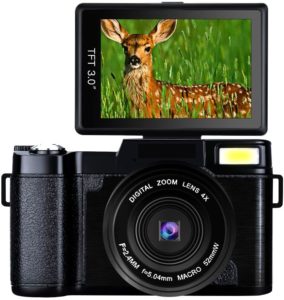
Check on Amazon
This camera supports full Hd recording 1080p video recording with the help of a 24MP 52 mm lens. This camera has some fresh and unique features along with its unique look. This camera features a 3-inch flip screen that gives you 180 degrees wide-angle view for any still. One of the cool features of this camera is its retractable flashlight arrangement, which provides the functionality of taking stunning pictures even in dim light.
This camera is easy to carry because of its unique and sturdy design, making it easy to take. Controls of this camera are labeled in an excellent manner, which makes photography hassle-free for the user.
6. Sony A5100
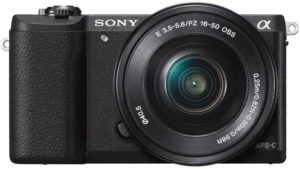
Check on Amazon
The Sony A5100 is a compact mirrorless camera sharing many of the features of its big brother, the A6000. This camera comes with a 24.3MP APS-C CMOS sensor with on-chip phase detection, which covers 92% of the frame and Sony’s latest image processor.
This camera has 3 inches touchscreen LCD, which can flip 180 degrees for easy self-portraits upward. Video features provided by this camera are quite impressive, with support for the XAVC S codec, and allows 1080/60p and 24p movies with a 50Mbps bit rate.
This camera has a minimum shutter speed of 30 sec and a maximum shutter speed of 1/1400 sec. This camera comes with the orientation sensor and time-lapse recording feature and supports SD/ SDHC/SDXC storage types.
7. Canon EOS 80D
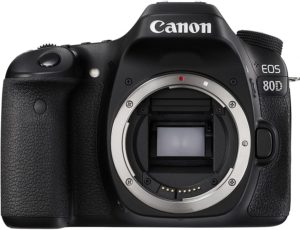
Check on Amazon
Canon EOS 80D is a robust 24.2 Mega Pixel DSLR camera having an APS-C CMOS sensor. This camera features a DIGIC 6 image processor, capturing 7fps burst shots and 1080p video at 60 fps. This camera comes with an autofocus sensor that covers a significant portion of the viewfinder. This camera features a 3 inches TFT touch monitor with 1.04 million dots providing a bright and sharp image.
In this camera, ISO speed has also been increased up to a standard ISO of 16000 (12800 during movie shooting) and an expanded ISO of up to ISO 25600, which allows the capture of beautiful shots with fast shutter speeds, even in low light conditions.
This camera supports various features like built-in flash, digital zoom, time-lapse, HDR movie, built-in microphone, HDMI mini OUT terminal. This camera also supports external storage, such as SD/SDHC/SDXC memory cards.
8. Sony DSC-RX100m V
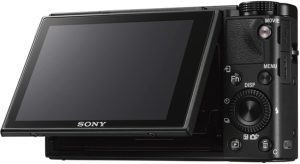
Check on Amazon
The Sony camera does provide you with access to a beautiful experience in terms of an excellent and enhanced experience in terms of budget performance. It comes with a 3-inch (1.3 million dots) LCD Display. The display can flip to around 180 degrees upside and 45 degrees downside.
Yet another feature we found extremely interesting is that it provides you access to an adjustable brightness depending on the direct sunlight. That would mean you do not need to change the settings. Of course, you can disable the feature if you do not want it. The camera also features a 20.1 megapixel CMOS sensor and a bright f/1.8-2.8 lens that ensures a better degree of picture quality.
The built-in WiFi and NFC connectivity will let you transfer the images quickly to your computer or other devices. It can record your videos in Full HD 1080p at 24, 30, or 60 frames per second. You can also have access to an enhanced experience of recording 4K videos for a duration of up to 5 minutes. You can also capture slow-motion videos at 960 frames per second.
Battery life is one of the features that need improvement. If you are using the ultra HD shooting features, you will get a backup of around 280 shots per charge.
9. Canon G7 X Mark II
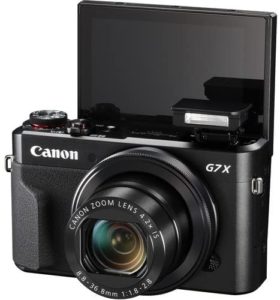
Check on Amazon
The camera comes with a multi-angle 3 inch LCD screen with 1.04 million dots. The screen can be flipped to 45 degrees down and 180 degrees up. The display also provides you access to a touch screen functionality that would add more value to your ability to control the camera and its settings.
The high-performance 1-inch 20.1 Megapixel CMOS sensor, along with a bright f/1.8-2.8 lens, would provide you access to high-quality performance with the best image quality. The lens quality and efficiency offer you access to an improved performance for the best and impressive image quality in almost every light condition. The camera comes with a new and improved image processor. You can be assured of image stabilization, autofocus tracking, and image clarity.
The camera has been one of the excellent options for recording your videos—the ability to record full HD videos at 1080p at 60 fps. You can also choose between four different modes for video stabilization. This helps the unwanted camera shake and other issues when shooting your videos.
Once again, you will find the battery life a little on the downside.
10. Panasonic ZS70S
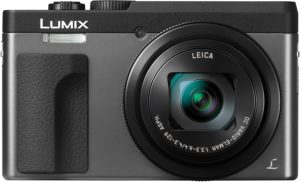
Check on Amazon
The Panasonic ZS70S is another excellent option for the camera with a flip screen that also offers you affordable pricing. The camera does feature a three-inch 180-degree flip screen. Just like Canon G7 X Mark II, the camera offers you access to touch-enabled services on display.
The Panasonic ZS70S provides you access to an improved 20.3 megapixel MOS sensor and 30x Leica DC VARIO-ELMAR Lens. The built-in 5 axis hybrid optical image stabilization is another excellent option you would find quite exciting and efficient in its own right for the more precise images and videos. The camera shoots 4K Ultra HD in 30 fps or 1080p Full HD in 60 fps.
The Panasonic ZS70S features an appealing option in the form of crystal clear 4K images as well. The focus assist function is another huge advantage that would further make it one of the added benefits. The post focus option also improves the focusing even after you have taken the shot.
The three-inch flip screen should be yet another colossal option that provides you access to an enhanced experience. The display also comes with touch screen functionality. The wireless file transfer through WiFi should be yet another plus point.
9. SUNLEO 2.7K UHD 30MP Vlogging Camera:
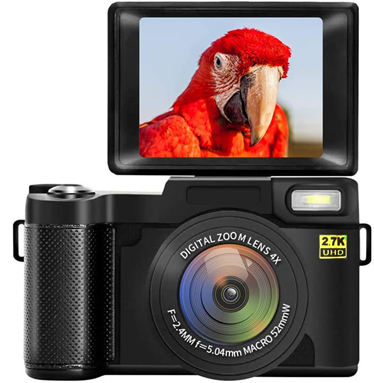
Check on Amazon
Capturing dynamic, crystal-clear images and videos at any angle is now easy with this vlogging camera. It comes with a 3-inch IPS screen that lets you preview and operate the device. The central feature is undoubtedly its flip screen. This screen can be rotated by 180°. Hence, it simplifies the tasks for shooting and capturing selfies.
Even in low light conditions, it performs extremely well. You have the freedom to enable front flash to illuminate a bigger area using the slider. The compact size and extraordinary features make it a perfect gift for special occasions and events. You can use this SUNLEO device as a webcam for live streaming and video chatting. For use, simply connect the camera to a USB cable and select the “PC CAM” mode. The package contains two 800 mAh Lithium-ion batteries, a 32 GB microSD card, a charger, a USB cable, and a neck strap.
Features:
- The photo and video resolution are respectively 2.7K and 30 MP.
- There is support for the external 52 mm lenses. The lenses it can support are a wide-angle lens, macro lens, UV lens, and teleconverter lens.
- The presence of a fixed lens eliminates the need for auto-focus. The focal length ranges from 1.64 feet to infinity.
- You can disable the start-up sound, keypress sound, and shutdown sound with the one-key mute function.
- The incorporated HDMI port lets you play the videos or the captured photos on a TV.
- Its pause function helps you pause and re-record the same video with the press of the “OK” button—no need to restart a new file.
- Additional features include webcam, flash, smile detection, face detection, anti-shake, continuous shooting, and timer shooting.
- It can support a microSD card of up to 128 GB.
8. LINNSE 2.7K Digital Camera:
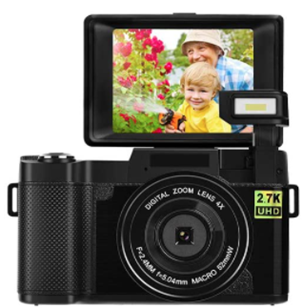 Check on Amazon
Check on Amazon
Invest in this 2.7k digital camera if you are looking for a lightweight, compact, and easy-to-use camera. It comes with 2 batteries and a 32 GB microSD card. So, you can comfortably take it outdoors for picnics, traveling, etc. Especially for a beginner photographer, this camera is a superb gift.
There is support for the webcam. Whenever you wish to perform video chatting with family or friends, this feature is useful. There is no need for a camera on your PC. Just connect the camera to the PC through the data cable and then choose the PC Camera mode as the webcam. Alternatively, you can use the data cable for transferring files to your PC and then share them among friends and family. Overall, it is found easy to operate and quite functional considering the price.
Features:
- It comes with a 30 MP photo resolution and 2.7K video resolution.
- The photo and video formats it supports are respectively JPEG and AVI.
- The M button is available to transit from photo to video mode. This button lets you operate the camera with a video pause function.
- With the 4x digital zoom function, you can expand the picture to capture the fine details.
- The 3-inch LCD flip screen supports 180° rotation. On this screen, you can see what you are shooting.
- Additional features include a one-button mute function, 3 continuous shooting functions, and a timer shooting function.
- It can support an external lens of size 52 mm.
7. iVOR 2.7K 30MP Digital Camera:
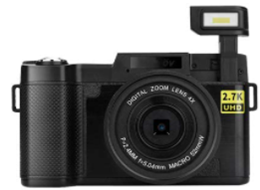 Check on Amazon
Check on Amazon
Whether you are a kid or student, or an amateur photographer, this digital camera proves to be quite easy to use. It is equipped with 2 batteries and a 32 GB microSD card. Generally, it is the best fit for sports events, recording travel moments, birthday parties, events, and other outdoor activities. Use the device anytime, anywhere to capture and shoot the wonderful scenery around.
The key specialty is its 3-inch flip screen. It can be rotated by 180° to make video recording and selfie shooting easier. Moreover, the adjustable flashlight system offers the best output even in low-light conditions. In dark environments, you just have to pop up the flash to obtain a brighter view. The pack comprises accessories like a 32 GB MicroSD card, two 800 mAh Li-ion batteries, and UV lens, a USB cable, a neck strap, and a user manual.
Features:
- It can shoot crystal-clear photos at a resolution of up to 30 MP. It can record videos up to 2.7K resolution.
- The 4X digital zoom allows you to observe fine details with clarity.
- For clarity, while recording videos, it comes with a speaker and a microphone.
- The webcam function works when you connect a PC through the USB cable and choose the “PC CAM” mode. This function helps you to perform video calls and live streaming.
- Other features include flash, multi-snapshot, smile capture, anti-shake, beauty face, and more. The MicroSD card is expandable up to 128 GB.
6. Panasonic LUMIX FZ300:
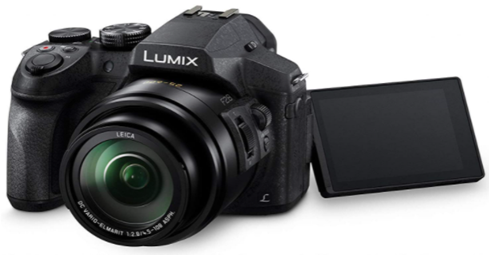 Check on Amazon
Check on Amazon
Panasonic designs the FZ300 camera considering the ruggedness of the outdoor weather. Its body is dustproof and splash-proof. There are tight seals on each joint, button, and dial. Hence, this camera can resist damage due to intense weather conditions. Whenever you want to record videos or capture photos in outdoor conditions, this camera is a great companion.
The high-speed focusing technology from Panasonic makes sure your subject appears sharp for video shooting and photo capturing. The 3-inch screen comes with a rear touch panel. It can freely rotate in all directions. The 1040k-dot rear monitor comes with a rotating and tilting ability. With the touch interface of the screen, you can quickly adjust focus.
Features:
- The 4K photo technology from Panasonic uses 30 fps in 4K Ultra HD resolution for video recording. So, the scenes are extracted as photos.
- The 4K video resolution suggests an amplified viewing experience four times bigger than the Full HD.
- The built-in 25-600 mm Leica DC Vario Elmarit lens comes with a 24x zoom. This lens supports full zoom range and f2.8 aperture for low light shooting.
- The 12.1 MP high-sensitivity MOS sensor comes with the Venus engine. It comes with excellent diffraction compensation. So, the output images appear crisp and free from artifacts arising due to small aperture settings.
- With the 5-axis hybrid optical image stabilization technology, the output is free from blur. This is possible for 5 various movements. There will be zero blurs in output even when you record with a single hand.
- The Level shot function identifies horizontal lines and maintains them. This is possible through the camera is inclined.
5. Samsung Electronics NX Mini:
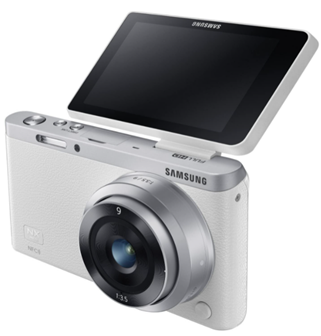 Check on Amazon
Check on Amazon
The NX Mini from Samsung is well-known as the world’s lightest and slimmest interchangeable. It provides you superior quality images with dynamic color. With a width of 22.5 mm and weighing just 158 grams, this camera seems quite easy to carry along. Though being lightweight, it comes in a solid metal body for accepting rugged outdoor uses. The leather type material boasts a chic and beautiful look.
The interchangeable 9 mm lens lets you capture any moments with great clarity and detail. The 3-inch LCD flip-up screen is suitable for selfies and video shooting at different angles. Moreover, the touch interface of this screen is intuitive. Share your best videos and photos with anyone through built-in NFC and Wi-Fi.
Features:
- The video recording resolution is 1080p HD.
- The 1-inch 20.5MP BSI CMOS sensor provides output with sharp details, clarity, and dynamic color. The output stays unaffected even if used in dim light conditions.
- With the maximum shutter speed of 1/16000 second, this compact camera lets you capture the objects in motion. So, you can capture scenes of a bird flying, car racing, etc.
- There is support for continuous shooting at 6 fps for vivid, clear stills of the fast-moving action scenes.
- The implemented Photo Beam technology allows you to share photos instantly. Just tap the camera on any NFC-compatible smartphone to automatically sharing the image you are presently watching.
- Various smart features it includes are e-mail, social media upload, MobileLink, DirectLink, Remote Viewfinder PRO, PC Auto-backup, AllShare, and Baby Monitoring.
4. Nikon D5600 DX-Format DSLR:
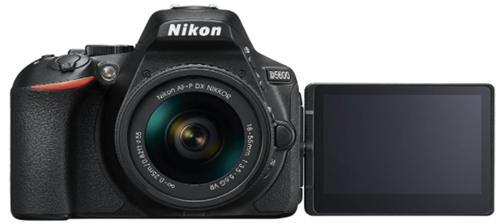 Check on Amazon
Check on Amazon
Gain confidence that the photos and videos your shoot will stand out from the crowd. The Nikon D5600 DSLR camera is best for beginner and experienced photographers and videographers. Being easy to use, you need not waste time learning its features. You can start using it right out of the box. Gradually as you level up your skills, the device provides great prospects to capture outstanding quality images and videos.
The user-friendly controls and efficient tools help you explore your creativity. With this Nikon device, you can record theatrical quality footage in Full HD. The output photos and videos feature great sharpness and dynamic color. Besides, the video output features stereo sound with exceptional clarity.
You can use your smartphone in the form of a camera remote to create and snap portraits from a far distance. Exactly as you do in a smartphone, you can pinch, swipe, zoom, and adjust the focus through your fingertips. Be creative while capturing and shooting by flipping out the rotating touch display. You can shoot and record at any angle. To benefit from smooth, quiet autofocus, you can pair the camera with an AF-P lens. The mentioned lens contains a stepping motor. Therefore, you can create wonderful time-lapse movies.
Features:
- The video resolution is Full HD 1080p at 60 fps.
- The built-in lens is AF P DX 18 55mm f/3.5 5.6G VR. Its sensitivity is ISO 100-25600.
- Its 3.2-inch wide 1.037m Dot Vari Angle display comes with a touch screen interface.
- Through SnapBridge, you can instantly transfer photos transfer to compatible devices like smartphones or tablets.
- The Nikon Image Space provides free cloud storage. No worries about whether your photos and videos are safely stored or not.
- With Wi-Fi with NFC connectivity, you can instantly share photos and videos.
- The built-in battery lasts more than 970 shots for every charge. So, you can shoot continuously throughout the day.
- Various shooting modes are Beach / Snow, Landscape, Candlelight, Portrait, Night Landscape, Night Portrait, Dusk / Dawn, Sunset, Food, Sports, Child, and more.
3. LUCKYCAM 48MP 4K HD Digital Camera:
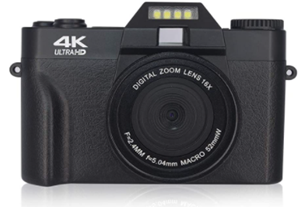 Check on Amazon
Check on Amazon
The outstanding clarity of the photos and videos is the key characteristic of this 4K HD camera. It comes with a flash setting for shooting in dim light conditions. The 3-inch flip screen is 180° rotatable. It helps you capture photos, selfies and shoot videos in different alignments. For YouTube recording, the wide-angle lens helps a lot. The built-in 32 GB memory card is enough to store the captured photos and recorded videos.
The control buttons are available at the top part. Simply choose the required mode and press the capture button to begin shooting. At the base of the camera, there is a screw hole. It helps mount the camera on a tripod. The design is portable, lightweight, and shows a retro look. This kind of design is the best fit for amateurs. For remotely controlling the camera for photo capturing, just scan the QR code. Alternatively, you can search and download the “XDV PRO” app on Google or App Store. After the connection establishes, you can directly obtain photos from the camera.
Features:
- The maximum resolutions for photo and video are respectively 48 MP and 4K.
- Its continuous shooting mode lets you capture the thrilling moment.
- The time-lapse shooting mode can condense the long video being recorded in a short duration.
- With the slow-motion shooting mode, the camera slows down the shooting content.
- The interval shooting mode allows you to set the interval. It is helpful for automatic shooting.
- With the WiFi function, it allows you to capture photos and shoot videos using smartphones.
2. Panasonic LUMIX G85:
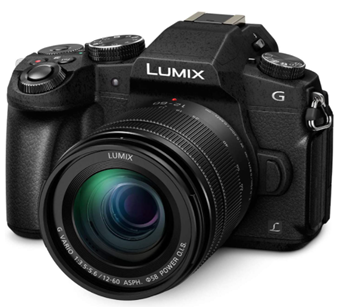 Check on Amazon
Check on Amazon
Comfortably take photos and record videos with this compactly designed LUMIX camera. Image stabilization is one of its unique features. It compensates for the vibration effect while shooting. With the creative controls, you can customize the photos and videos. What makes the G85 stand out from the crowd is it lets you choose the perfect moment from the distinct video frames. You can save them in the form of high-resolution pictures.
The shutter unit is equipped with a cutting-edge electromagnetic drive. It significantly decreases the shock arising due to the movement of the diaphragm. Additionally, the shutter sound is prominently reduced—the camera ships with 2 batteries. One battery is installed in the camera, whereas the other is present in the battery grip. With the power grip (optional), you obtain excellent comfort while shooting at different angles. This grip ensures stability even when you shoot with one hand. The dustproof and splashproof body suggests that the camera can work well in outdoor conditions.
Features:
- The video recording resolution is 4K QFHD (3840 x 2160p).
- The 16 MP micro four-thirds sensor comes with no low pass filter. It can capture sharp images with details.
- The built-in 12-60mm F3.5-5.6 lens allows fast shooting.
- Its OLED Live View Finder comes with a 0.74x magnification ratio. This function allows you to capture whatever you see.
- With the 100% color reproduction and 2360K-dot high resolution, the visibility is excellent.
- The mentioned viewfinder and the rear-touch enabled a 3-inch LCD screen to adjust to present optimal viewing angles.
- The 4K Post Focus and Lumix 4K photo helps you capture photos a speed up to 30 fps. You can adjust your anticipated focus points once the photo gets captured.
- There is the implementation of 5-axis dual image stabilization. It functions for both image and motion picture recording for producing clear shots regardless of light conditions.
- The diopter adjustment is -4.0 – +4.0 (dpt).
Panasonic LUMIX DC-ZS70K:
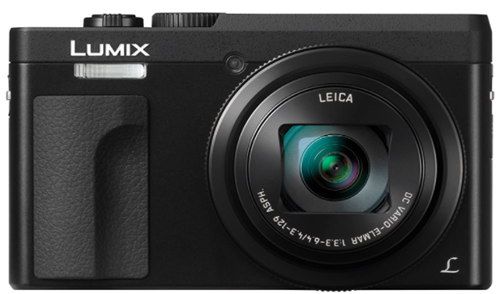 Check on Amazon
Check on Amazon
The LUMIX ZS70K boasts video recording quality four times than full HD. With the clarity of 4K video, you can capture all the memories for a lifetime. It is due to 3-inch 180° monitor that supports tilt function to provide the perfect selfie. This monitor comes with a touch interface. You just need to capture the scene, analyze the image on the screen and touch the precise part of the photo you need to sharpen.
For quick access to the important functions, the control ring is lens barrel mounted. This ring helps you to manually control shutter speed, aperture, focus, and zoom. To choose your favorites settings, you can make some customization. Share the captured images and recorded videos through WiFi 802.11b/g/n.
Features:
- The video recording resolution is 4K QFHD.
- It comes with a 4K photo and 4K post focus along with an internal focus. The 4K photo allows you to capture the moment at 30 fps and late save it in the form of an 8 MP equivalent high-res image.
- The 24 mm LEICA DC VARIO-ELMAR lens comes with a 30x optical zoom. The focal range is 24-720 mm allowing you to include the subject you need.
- The lens and 20.3 MP MOS sensor capture sharp details.
- To compensate for shaky effect and blurring, it comes with 5-Axis hybrid optical image stabilization. It identifies and compensates for 5 kinds of movement.
- The Level Shot function recognizes and upkeeps the image’s horizontal line, although the camera is inclined.
- The 0.2-inch 1,166k dot EVF along with the eye sensor provides optimal viewing even in bright light conditions.
- For the motion picture, the recording file format is MP4, AVCHD, and AVCHD Progressive.
Conclusion
That’s all the cameras that we currently recommend that are ideal for vlogging. If you like our recommendations or would like to give us feedback, feel free to drop us a line in the comments section below.

